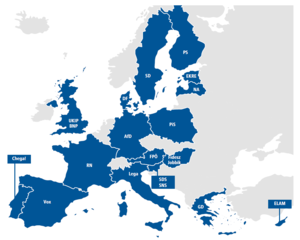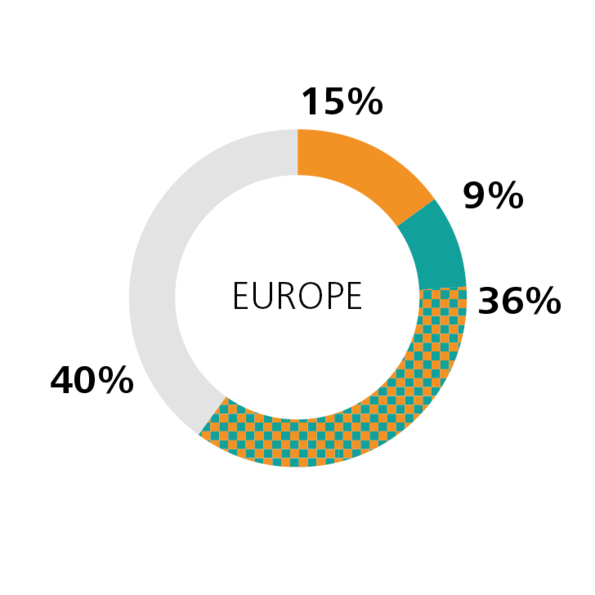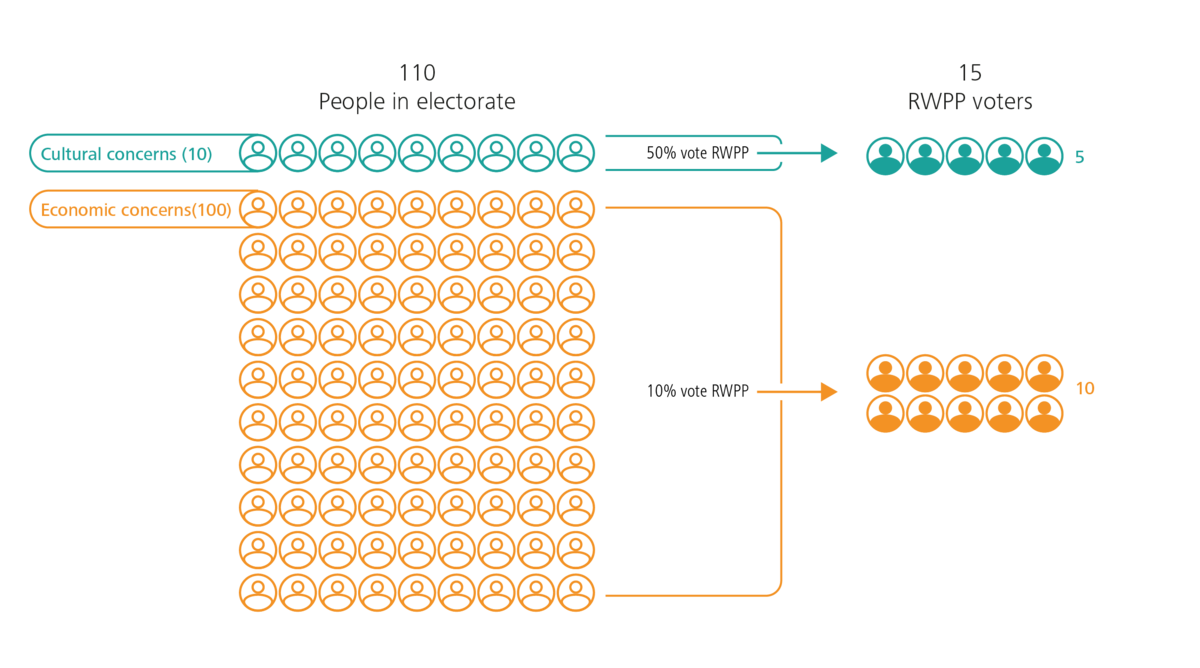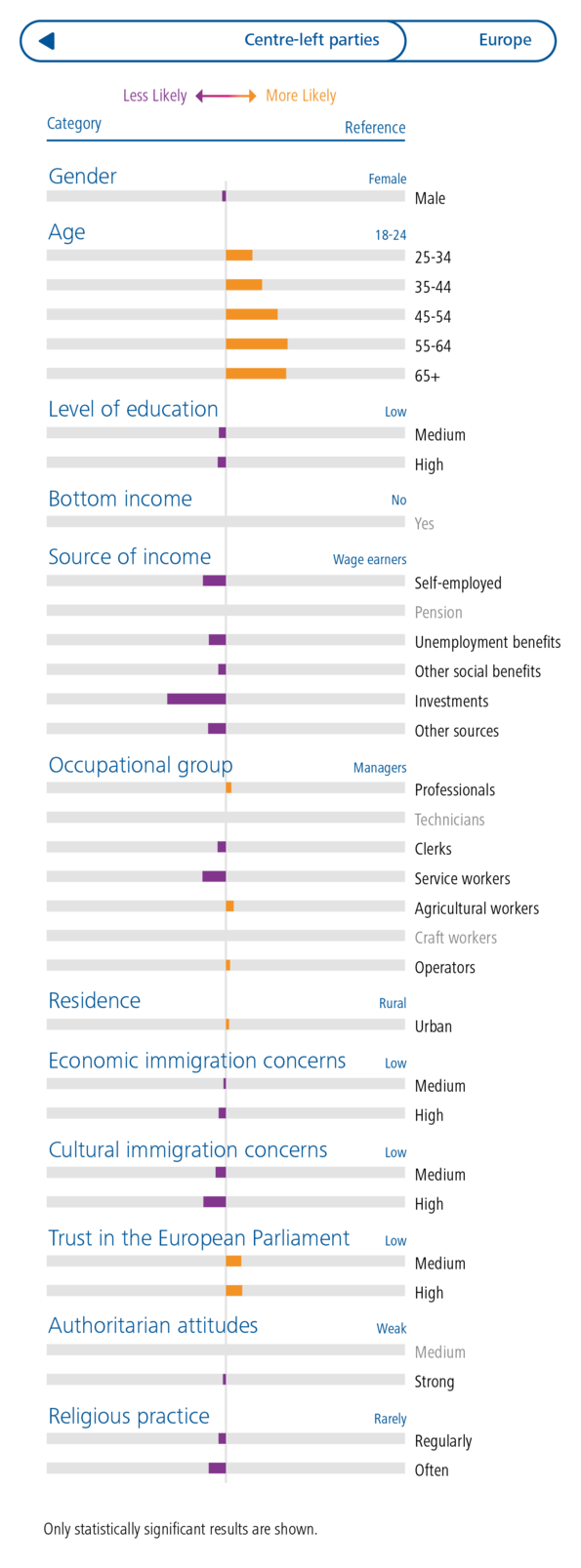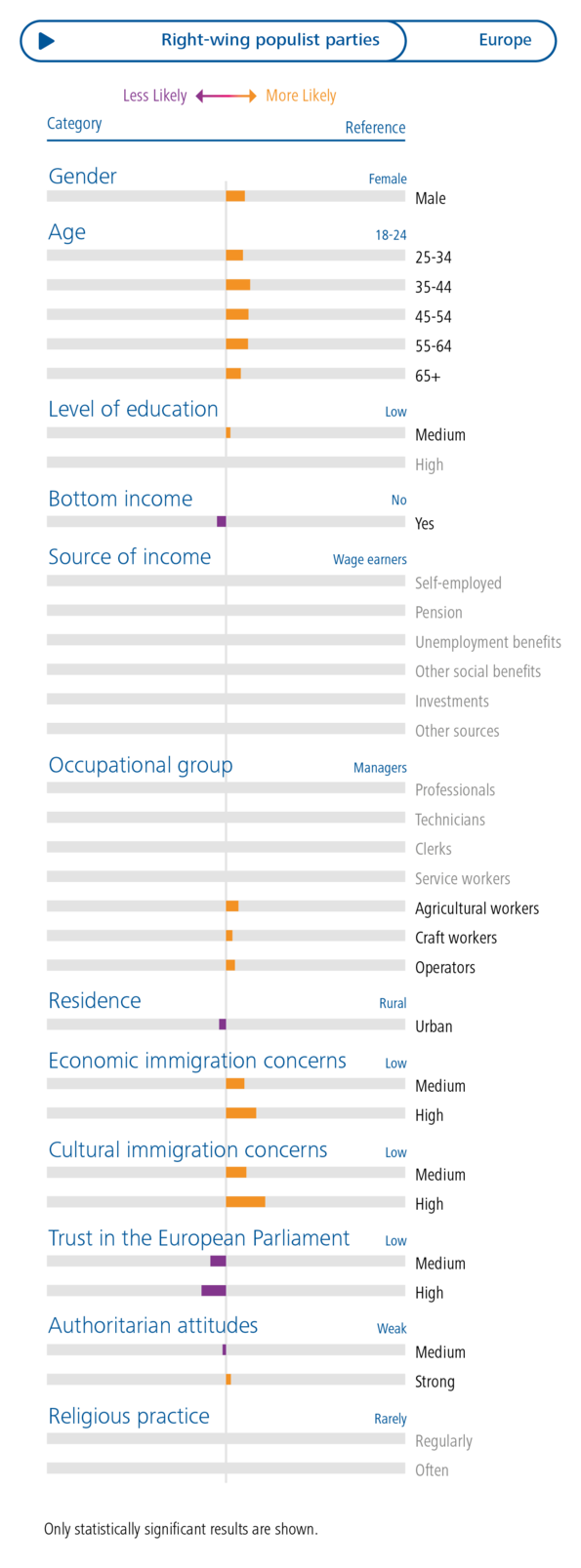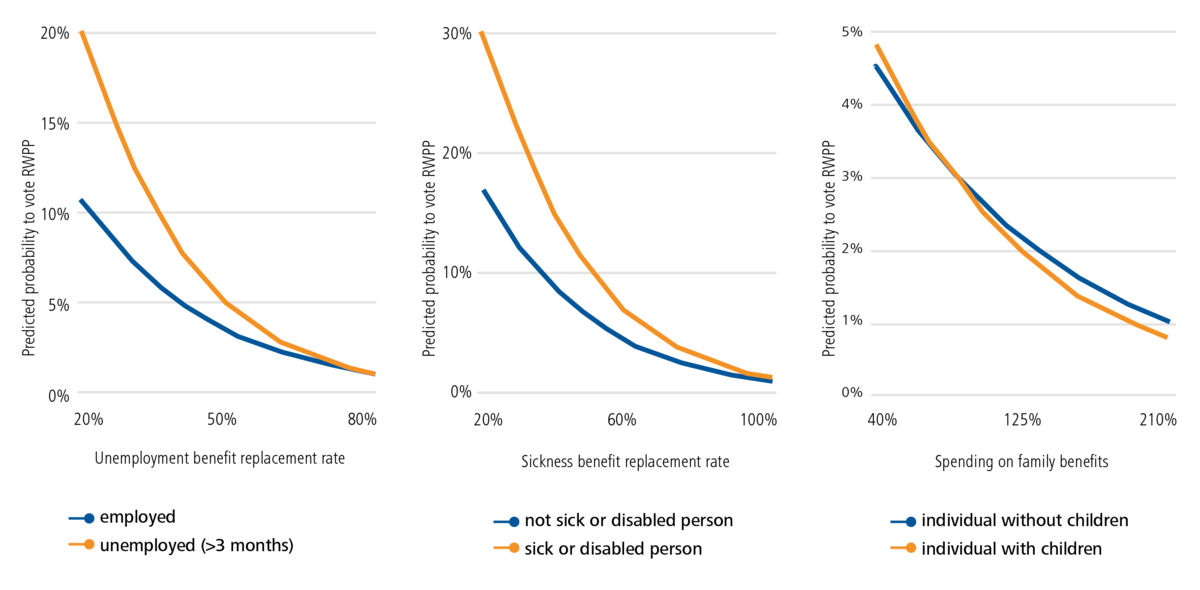Right-Wing Populism

Democratic backsliding is fundamentally linked to the rise of right-wing populism. It is right-wing populist parties (RWPPs) and their leaders that are at the forefront of undermining democratic institutions. They aim to capitalize on the dissatisfaction of people with the political system and their individual economic and social prospects and worries. Understanding the electoral success of RWPPs is crucial if we want to successfully safeguard liberal democracy.
Understanding Right-Wing Populism And What To Do About It
The report Understanding Right-Wing Populism And What To Do About It presents a combination of empirical and qualitative analysis of right-wing populist parties (RWPPs) in 17 European countries.
In order to better understand the success of European right-wing populist parties (RWPPs) the report looks at the Three Ps:
- The First P: People: Why do individual people vote for RWPPs? (Demand)
- The Second P: Parties: What makes certain RWP parties more successful than others? (Supply)
- The Third P: Policies: What is the role of social policies in facilitating and/or moderating RWPP success?
How the Three Ps help us understand right-wing populism
Imagine a construction worker is concerned with the economic impact over immigration. Specifically, he is concerned with the effect low-skill immigration has on his labour market position. This would mean a lot of competition that might push down wages. Against this background, a RWPP is advocating a policy restricting immigration. The RWPP supplies the demand of the voter for addressing his economic concerns with a (policy) answer. Now imagine at the same time, previous governments have watered down employment protection legislation protecting his job. And this legislation would have minimized the economic risks he is facing from actually coming to pass. If another policy was in place this voter might have never voted for RWPP. One can easily imagine how the social policies in place (not) addressing this voter's (economic) concerns do also have an effect on his vote choice.
Find out below how exactly demand, supply and policies affect RWPP success.
A cooperation project with Daphne Halikiopoulou (University of Reading) and Tim Vlandas (University of Oxford).
Publication & Downloads
Single Country Case Studies
If you are only interested in single country case studies, you can also individually download the regional comparative patterns below which are identical to the respective chapters in the full report. All downloads include a summary of the full report as well.
Western Europe: Germany, Austria and France
Southern Europe: Greece, Cyprus, Spain and Portugal
The Nordics: Denmark, Finland and Sweden


